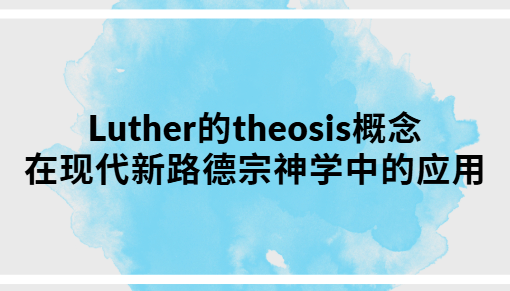reveals several distinct theological traditions and approaches to understanding how God’s eternal plan operates in the world and through the Church. These theories differ significantly in their conceptual frameworks, methodological approaches, and practical implications.
## Eastern Orthodox Tradition
The **Eastern Orthodox approach** to divine economy (*oikonomia*) emphasizes the relational and Trinitarian dimensions of God’s plan. This tradition, exemplified by theologians like John Zizioulas, views divine economy as fundamentally about **communion**—God’s desire to share His own relational life with creation[1].
Key characteristics include:
– **Trinitarian foundation**: The divine economy reflects the Father, Son, and Holy Spirit’s perfect communion, serving as the archetype for ecclesial existence
– **Sacramental embodiment**: The Church makes divine economy present through sacramental life, especially the Eucharist
– **Pastoral flexibility**: *Oikonomia* allows for adaptive application of church law in service of salvation
– **Eschatological orientation**: Divine economy bridges the present and future kingdom
## Western Scholastic Framework
The **Western tradition**, particularly as developed by Thomas Aquinas, presents divine economy as God’s eternal plan encompassing both the order of nature and grace[1]. This approach emphasizes:
– **Systematic organization**: Divine economy as a comprehensive plan hidden in God’s intellect from eternity
– **Incarnational focus**: The Word’s incarnation as the central mechanism of salvation
– **Secondary causation**: Creatures participate in God’s causality as agents through whom divine economy operates
– **Sacramental mediation**: Created signs endowed with power to communicate grace
## Reformation Perspectives
**Protestant reformers** adapted divine economy concepts to support their theological innovations:
**Calvin’s approach** emphasized God’s sovereign administration of salvation, particularly regarding election and predestination. This view presents divine economy as:
– **Sovereignty-centered**: God’s meticulous ordering of salvation
– **Church-mediated**: The Church as primary means for administering divine grace
– **Decree-based**: Divine economy reflecting eternal divine decisions
**Luther’s framework** connected divine economy to justification by faith, viewing:
– **Grace administration**: Church’s role in dispensing God’s grace through Word and sacraments
– **Faith-focused**: Divine economy enacted through justification by faith alone
## Contemporary Economic Theology
Modern approaches have expanded divine economy beyond traditional theological boundaries to include **economic and political dimensions**:
**Liberation theology** reinterprets divine economy to emphasize social justice, arguing that God’s plan should prioritize the poor and marginalized rather than abstract theological formulations.
**Political theology** examines how early Christian economic metaphors influenced state administration, with scholars like Devin Singh demonstrating how theological concepts of divine currency and economic administration shaped political governance[2].
## Comparative Economic Models
Recent scholarship has developed **platform models** for understanding religious competition, treating religious organizations as economic platforms that compete for adherents[3]. This approach analyzes:
– **Competition dynamics**: How religions compete for “market share” using economic principles
– **Service differentiation**: Religious organizations offering distinct spiritual “products”
– **Quality screening**: High participation costs serving as screening mechanisms for committed members
## Methodological Differences
The various theories employ fundamentally different methodological approaches:
**Historical-developmental**: Eastern Orthodox and patristic approaches emphasize historical unfolding of divine economy through salvation history
**Systematic-logical**: Western scholastic traditions organize divine economy into comprehensive theological systems
**Empirical-analytical**: Contemporary economic approaches apply social scientific methods to analyze religious behavior and competition
**Pastoral-practical**: Orthodox *oikonomia* principles emphasize flexible application for pastoral care
## Theological Tensions and Debates
Comparative analysis reveals several persistent tensions across divine economy theories:
**Immanence vs. Transcendence**: Whether divine economy requires genuine divine change or reflects eternal divine decisions involving no temporal alteration
**Individual vs. Communal**: Tensions between personal salvation and communal ecclesial embodiment of divine economy
**Historical vs. Eternal**: Questions about the relationship between God’s temporal actions and eternal nature
**Theological vs. Economic**: Contemporary debates about whether divine economy concepts reflect culturally conditioned economic metaphors rather than essential theological truths
## Synthesis and Contemporary Relevance
The comparative analysis suggests that divine economy theories share common concerns while differing in emphasis and application. All approaches recognize that:
– God’s plan involves both transcendent purpose and historical embodiment
– The Church plays a crucial mediating role in divine economy
– Theological concepts have practical implications for human community and governance
– Divine economy addresses fundamental questions about the relationship between eternal divine purposes and temporal human experience
Contemporary scholarship increasingly recognizes that these different approaches are **complementary rather than contradictory**, each highlighting different dimensions of how divine purposes are understood to operate in the world. The ongoing development of divine economy theories continues to influence modern discussions about economics, politics, social justice, and the role of religious institutions in contemporary society.
Sources
[1] Economy, Divine | Encyclopedia.com https://www.encyclopedia.com/
[2] Divine Currency: Excerpt from the Introduction https://www.sup.org/books/
[3] [PDF] The Divine Economy: – American Economic Association https://www.aeaweb.org/
[4] A Comparison of the Theme of “Redemption” in Beicun’s “Divine Writing”: Taking I Have a Covenant with God and The Book of Consolation as Examples https://lseee.net/index.php/
[5] From Social Structures to Techno-Economic Paradigms: Comparison of Four Phases of Capitalism Theories https://scienceopen.com/
[6] Sustaining Abundance: The Role of the Divine River in the Economy of Ancient Persia https://journal.equinoxpub.
[7] Pragmatic dimensions in parable research and the divine economy of the basileia http://www.hts.org.za/index.
[8] Comparison of Digital Economy Efficiency and Input Redundancy in China Based on DEA Model http://eudl.eu/doi/10.4108/
[9] Theorizing Divine Generation: Reading James 1:16–18 with the Middle Platonists https://brill.com/view/
[10] ESG practices and bank efficiency: new evidence from an oil-driven economy http://www.emerald.com/imefm/
[11] The Tension Between Divine Command Theory and Utilitarianism in Mozi and George Berkeley: A Comparison https://muse.jhu.edu/article/
[12] Factors that determine the entrepreneurial intention of university students: a gender perspective in the context of an emerging economy https://www.tandfonline.com/
[13] The Common Good According to Great Men of Prayer and Economists: Comparisons, Connections, and Inspirations for Economics https://www.mdpi.com/2077-
[14] About – Divine Economy Theory https://www.
[15] [PDF] Reviews Divine Economy – Journal of Markets & Morality https://www.
[18] Divine Economics – Jesus teachings and economic principles https://cdnc.heyzine.com/
[19] The Divine Economy: How Religions Compete for Wealth, Power … https://blogs.lse.ac.uk/
[20] Book Review | The Divine Economy: How Religions Compete for … https://blogs.lse.ac.uk/
[21] Economics of Genesis: On the Institutional Economic Deciphering and Reconstruction of the Stories of the Bible https://figshare.com/articles/
[22] Contesting the Dynamics of Secular Development: An Ontology of Trinitarian Well-Being as Christian Rationale for Human Well-Being https://www.schoeningh.de/
[23] Ethic Economics, Fair Economy, New Economy, Sustainability and other Related Disciplines https://www.cribfb.com/
[24] Sacramental Exchange: Eschatological Economy and Consumption Ritual https://www.mdpi.com/2077-
[25] Comparative Study of Contemporary Islamic Economic Thoughts Muhammad Abdul Mannan and Monzer Kahf https://jurnal.yudharta.ac.id/
[26] Homo Economicus and the Stories of Jacob: On the Methodological Relevance of Rational Choice Theory for Studying the Hebrew Bible https://figshare.com/articles/
[27] An Analysis of Economic Wealth of God’s People from Nomadic to Post Exilic Era https://sttintheos.ac.id/e-
[28] Review of Joost Hengstmengel’s Divine Providence in Early Modern Economic Thought. New York, NY: Routledge, 2019, 248 pp. https://ejpe.org/journal/
[29] Islamic and capitalist economies: Comparison using econophysics models of wealth exchange and redistribution https://dx.plos.org/10.1371/
[30] Time Poverty in Perspectives of Divine Economics Framework: An Empirical Analysis of District Chakwal https://www.scienceimpactpub.
[31] Divine Currency: Table of Contents | Stanford University Press https://www.sup.org/books/
[32] review-of-divine-economy-
[33] Drama of the Divine Economy: Creator and Creation in Early … https://www.
[34] Divine Economy and Its Real World Economic Principles https://mtindonetwork.org/wp-
[35] God’s Economy in Patristic Usage | conversant faith https://conversantfaith.com/
[36] The Divine Economy – Cambridge Papers https://www.cambridgepapers.
[37] Microsoft Word – 01_Proniewski https://repozytorium.uwb.edu.
[38] Economics – St Andrews Encyclopaedia of Theology https://www.saet.ac.uk/
[39] Economy (religion) – Wikipedia https://en.wikipedia.org/wiki/
[40] The Divine Economy – by Mark Koyama https://www.markkoyama.com/p/




